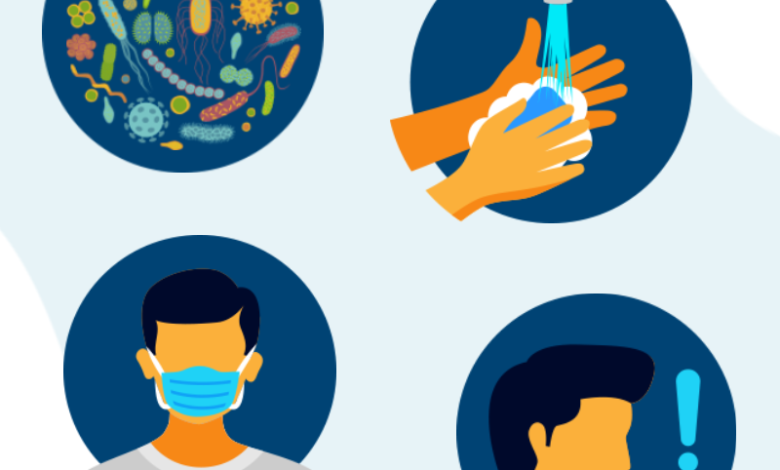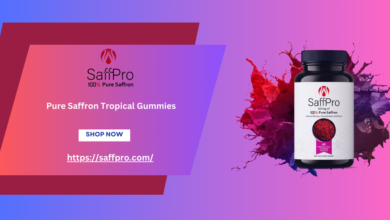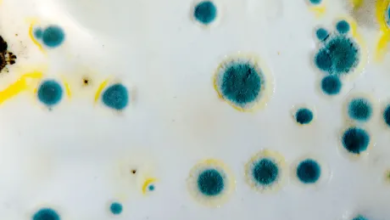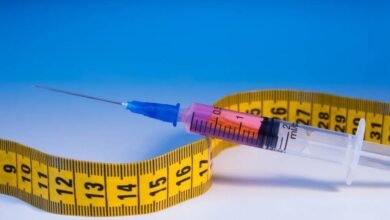
COVID-19 has caused a global health crisis, and with it, there’s been an overwhelming amount of information on how to manage symptoms, prevent the spread, and recover. While it’s crucial to follow medical advice and guidelines for treating the virus, it’s equally important to know what not to take. Some over-the-counter (OTC) medications, supplements, or home remedies can either worsen symptoms or interfere with prescribed treatments, potentially causing more harm than good.
1. Non-steroidal anti-inflammatory Drugs (NSAIDs)
NSAIDs, such as ibuprofen (Advil, Motrin), naproxen (Aleve), and aspirin, are commonly used to reduce pain, fever, and inflammation. However, early in the pandemic, concerns arose about the potential risks of using NSAIDs in people with COVID-19.
Some studies suggested that NSAIDs could exacerbate complications in COVID-19 patients, especially concerning respiratory issues. Although the World Health Organization (WHO) later stated that there is no definitive evidence linking NSAIDs to worsened outcomes, many experts recommend caution. If you’re considering taking an anti-inflammatory drug, it’s best to consult your healthcare provider to determine what’s safe based on your case.
Why Not to Take?
- Potential to worsen inflammation in the body, especially in the lungs.
- May mask important symptoms like fever, which helps monitor the severity of the infection.
2. Certain Cough Syrups with Alcohol
When dealing with symptoms like cough and sore throat, many people turn to cough syrups for relief. However, it’s important to be cautious with what you choose. Some over-the-counter (OTC) cough syrups contain alcohol or codeine, which can interfere with your recovery and exacerbate respiratory issues.
Why Not to Take?
- Alcohol in cough syrups can suppress your immune system and contribute to dehydration, making it harder for your body to fight off the virus.
- Codeine and other opioids can suppress your respiratory system, which is dangerous if your COVID-19 symptoms include shortness of breath.
Instead, opt for cough syrups without alcohol or codeine and focus on hydration and steam inhalation to ease congestion naturally.
3. Antihistamines (For Non-Allergic Symptoms)
Antihistamines, like diphenhydramine (Benadryl), are typically used to treat allergy symptoms such as sneezing, itching, or runny nose. While they can provide relief for allergies, using antihistamines to treat COVID-19 symptoms that aren’t related to allergies is not advisable.
While antihistamines can relieve some symptoms such as a runny nose, they do not treat the root cause of COVID-19 and could lead to unnecessary side effects, including dizziness and sedation, which could worsen your overall condition.
Why Not to Take?
- Drowsiness and sedation may affect your ability to monitor and manage other critical symptoms, such as shortness of breath.
- May mask underlying symptoms, leading to confusion regarding the progression of the disease.
If you’re uncertain about whether to use antihistamines, it’s best to consult your healthcare provider for advice tailored to your situation.
4. Over-the-counter cold and Flu Medications
Cold and flu medications, like those containing decongestants (e.g., pseudoephedrine), antihistamines, or pain relievers, are often used to treat common cold symptoms. While these medications can provide temporary relief from nasal congestion, they can also pose risks when used in COVID-19 cases.
Why Not to Take?
- Decongestants can increase heart rate and blood pressure, which may complicate existing conditions like high blood pressure or heart disease.
- These medications may mask symptoms of COVID-19, such as fever, which are important for tracking your health status and determining the severity of the illness.
- Some formulations may interact with COVID-specific treatments or medications prescribed by your doctor.
Instead of using these medications, focus on staying hydrated, resting, and utilizing natural remedies like steam inhalation or saline nasal sprays to relieve congestion.
5. Vitamin and Mineral Supplements Without Doctor’s Guidance
Vitamins and minerals, such as Vitamin C, Vitamin D, and zinc, are often recommended to support immune function. However, during an active infection like COVID-19, taking excessive amounts of these supplements without consulting a healthcare provider can be harmful.
Why Not to Take?
- Excessive Vitamin C can cause gastrointestinal issues such as diarrhea and stomach cramps.
- Overdosing on Vitamin D or zinc can cause toxicity, leading to nausea, vomiting, and more serious complications.
- High doses of certain supplements could interfere with prescription medications you might be taking to treat COVID-19.
It’s always best to seek professional advice before adding any supplements to your routine, as your body’s needs during illness can vary greatly from your usual health maintenance regimen.
6. Antibiotics (Without Medical Supervision)
Antibiotics are used to treat bacterial infections, but they are ineffective against viral infections like COVID-19. Despite this, some people may be tempted to take antibiotics in the hope of speeding up recovery or preventing secondary infections. However, using antibiotics inappropriately can lead to antibiotic resistance, making future bacterial infections more difficult to treat.
Why Not to Take?
- Antibiotics are not effective against viral infections like COVID-19.
- Unnecessary antibiotic use contributes to antibiotic resistance, a global health concern.
- Taking antibiotics without a doctor’s supervision can lead to side effects, such as digestive issues or allergic reactions.
Always consult your healthcare provider before using any form of medication, including antibiotics, to avoid misuse.
7. Home Remedies Without Evidence
Some people turn to home remedies, such as herbal teas, hot toddies, or steam treatments, in the hopes of alleviating symptoms of COVID-19. While some remedies, like staying hydrated and using steam, can provide mild relief, others may cause harm.
Why Not to Take?
- Some herbal remedies may interact negatively with medications.
- Hot toddies, often containing alcohol and honey, can lead to dehydration and worsen symptoms.
- There’s no scientific evidence that unproven home remedies can cure or reduce the severity of COVID-19.
It’s crucial to seek evidence-based treatments and consult with healthcare providers before relying on unproven home remedies.
Conclusion
While COVID-19 treatment options vary depending on individual health factors and the severity of the illness, knowing what not to take is just as important as understanding what treatments work. Avoiding NSAIDs, certain over-the-counter medications, excessive supplements, and antibiotics (unless prescribed) will help ensure that your recovery is safe and effective. Always consult a healthcare provider before taking any medication or supplement, and adhere to public health guidelines to reduce the spread of the virus and protect your health.


